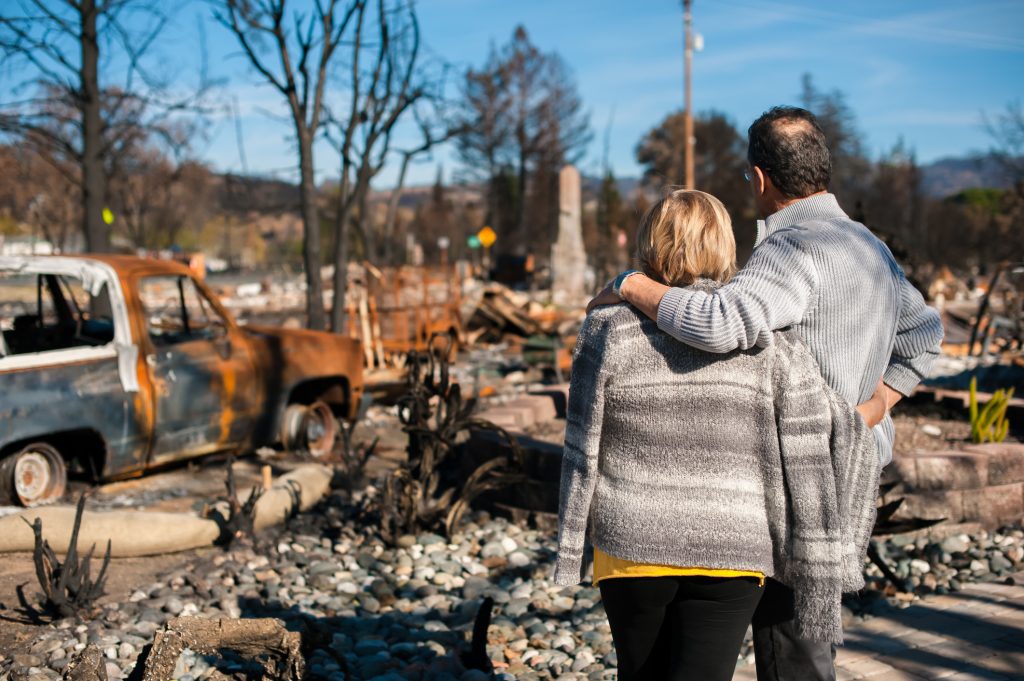 If you were faced with a home fire, flood or other natural disaster to your home, how would you plan for the unexpected? Below are some important tips to keep your financial records safe and accessible during and after an emergency.
If you were faced with a home fire, flood or other natural disaster to your home, how would you plan for the unexpected? Below are some important tips to keep your financial records safe and accessible during and after an emergency.
- Be sure to save important records in a secure location, especially hard to replace records or originals. You can save items in a bank safe deposit box or a home safe. Any home safe needs to be rated to withstand temperatures up to 1700 degrees.
- Put together a financial disaster kit that is in a sturdy portable folder or box that you could take with you if you had to evacuate your home in an sudden emergency. This financial disaster kit would allow you to manage your finances from another location. This kit would contain a copy of everything that is in your safe or safe deposit box, plus all of your financial account information including: checking account and credit-card numbers, bank and investment account statements, retirement account records, recent pay stubs and employee benefit information, and rental agreement or mortgage documents.
- Protect your access to cash. Everyone needs to have an emergency fund. However, it is always a good idea to have a little bit of extra cash at home in the safe. Make sure that it isn’t just big bills, but bills that are readily accepted like $20s.
- Don’t use up all of your credit. Always have room on credit cards that you could access during an emergency.
- Make a hard copy of everything in your wallet, scan that, and keep in your backups in your safe or safe deposit box.
- Make sure you always have electronic access to all of your financial accounts.
- Be sure to tell someone else in your family or your trusted circle where all of your important financial records and documents are kept.
- Make an inventory of your home possessions. The inventory can be videos or photos of every room, or copies of purchase receipts. Keep those things digitally backed up in your safe or safe deposit box so you can show exactly everything that you owned prior to the disaster.
For more information and tips on emergency preparedness, please see the resources at www.ready.gov.
